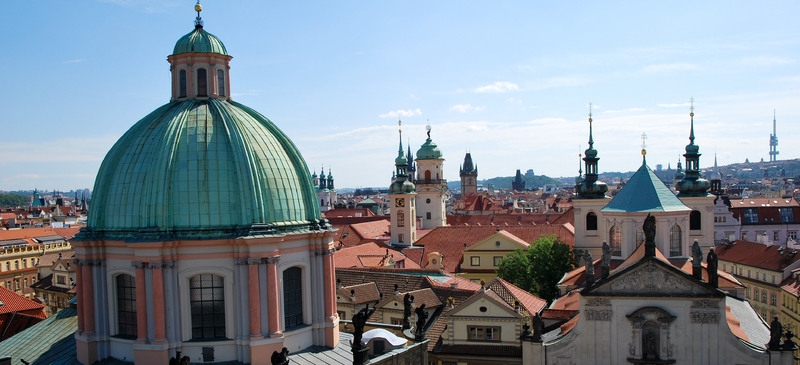
The Czechs in the EU: In the middle of the class
by Charles Grant
On a recent visit to Prague, people kept asking me how the Czech Republic was doing as EU member-state, and whether it was a successful member. With the Czechs preparing to take over the rotating presidency of the EU next January, a lot of people outside the Czech Republic will start to ask that question, too.
In my view, the Czechs are neither at the top nor the bottom of the ‘class of 2004’, that is the group of countries that joined the EU almost four years ago. They have not been curmudgeonly and difficult, as have, say, the Poles, threatening to veto the Lisbon treaty because of its voting rules, or the Greek Cypriots, who have prevented the EU ending the isolation of Northern Cyprus because of their conflict with Turkey. But the Czech Republic has not become an easy-going, middle-of-the-road member like Slovenia.
The Czechs have not been afraid to take strong positions on a number of issues. On the positive side (as far as the CER is concerned), the Czechs are ardent free-traders, always voting against anti-dumping duties as a matter of principle. The government believes that EU foreign policy should take account of human rights, and vigorously seeks to promote them in countries like Belarus, Burma, Cuba and Iran. The economy has performed quite well (certainly compared with Hungary), growing by about 6 per cent a year. It meets most of the ‘Maastricht criteria’ that aspiring euro members should comply with.
But the Czechs have put aside their plans to join the euro. This is because President Vaclav Klaus, a Thatcherite eurosceptic, is deeply hostile to monetary union. Although an over-valued crown is hurting Czech exporters such as Skoda, and two thirds of the country’s trade is with the eurozone, the Czechs are unlikely to join the euro so long as Klaus is in office (he has just begun a second five-year term).
On other issues, too, Klaus often takes idiosyncratic positions that put Prague at odds with other EU capitals. He is the only EU leader to argue that climate change is not a problem, and his interventions have ensured that Prime Minister Topolanek’s government is hesitating over supporting some of the European Commission’s recent proposals on climate change.
Part of Klaus’s strange political genius is that he manages to be pro-US, and particularly pro-Bush, while enjoying a warm relationship with Vladimir Putin. His Atlanticism spurs him to welcome American radars onto Czech soil, as part of the US’s controversial (and unpopular among Czechs) missile defence system. Yet Klaus also defends Putin from his western critics, praises his achievements in Russia, and speaks proudly of the medal that the Russian president recently bestowed upon him. Perhaps it is not so strange for the leader of a small and rather weak country – that was invaded only 40 years ago – to be so respectful of the powerful, whether or not they are democrats.
When I was last in Prague, just before the country joined the EU, everybody complained about corruption. On my recent visit I was told that the problem was no better. At all levels of government, apparently, bribery may play a role. The courts, too, suffer from this malaise. The fact that corruption afflicts many other countries that have recently joined the EU – as well as some of the older members – is no excuse. During the 1990s the Czech Republic seemed in many ways the most advanced of the countries applying for membership. When it comes to governance, the Czechs are no longer ahead of the pack, and have fallen behind the Baltic states.
The Czechs are natural allies of the British. If one listens to people in the Czech government talking of the need to slash spending on the common agricultural policy, they sound like officials in the British Treasury. The Czechs support close transatlantic ties and are wary of European federalism.
Yet despite their natural sympathy for the UK, many Czechs complain of being ignored by the British. Ministers in London seldom find time to visit Prague – though French ministers are often in town, cultivating partnerships with the Czechs. Last autumn, when Czech ministers spoke out in favour of the British stance on Zimbabwe, and said they would boycott the EU-Africa summit if Robert Mugabe turned up, nobody in London bothered to call Prague to say thank you. The British are generally not the most popular people in Europe. They should therefore do more to nurture close ties with those who share their world view, such as the Czechs.
Charles Grant is director of the Centre for European Reform.
